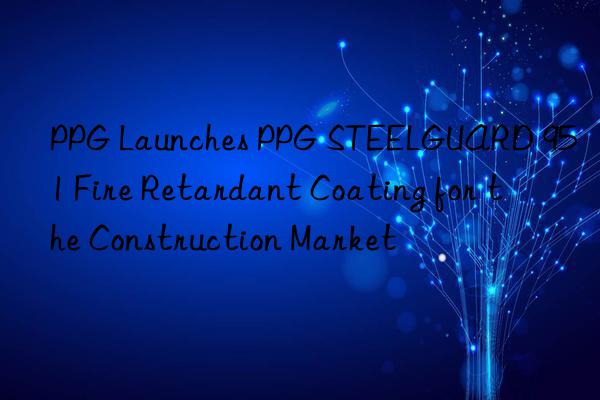
On February 14, PPG (NYSE: PPG) announced the launch of PPG STEELGUARD® 951 coating, an innovative epoxy intumescent fire retardant coating, can provide up to three hours of cellulose fire protection, which can well meet the various needs of modern steel structure buildings.
In the event of a fire, the passive fire protection coating can expand from a thin, lightweight coating to a thick foam-like insulating coating, helping to insulate steel structures and maintain the integrity and stability of the protected structure, allowing People have more time to escape with less damage to buildings and assets.
PPG Steelguard 951 coatings also provide effective corrosion protection in highly corrosive atmospheric environments and can meet ISO 12944 without a topcoat C5 level anti-corrosion requirements, to achieve the same anti-corrosion effect and durability while reducing project time and cost. Its single dry film thickness can reach 3500 microns, and its curing and drying are very fast. The steel structure can be transported the next day after spraying the fireproof coating.
Richard, Global Passive Fire Protection Product Manager, PPG Industrial Protective and Marine Coatings Business Mann said: "Steel structures are playing an increasingly important role in the field of modern architecture, and the steel structures of various buildings designed based on function must also meet specific fire protection, corrosion protection and aesthetic requirements. PPG Steelguard 951 coating is very unique, it combines beautiful finish appearance and long-lasting and durable anti-corrosion protection function, more importantly, it can also provide efficient fire protection to ensure the stability of steel structures in fire. "
The coating is based on PPG's patented tough epoxy resin technology, which provides excellent weather resistance and enhanced edge protection, which can reduce the risk of coating cracking during steel structure handling. Its test results comply with all recognized national and international fire protection and corrosion protection standards, including EN 13381-8, BS 476, ISO 12944, GB 51249 and GB14907 (suitable for different environments and scenarios).



 微信扫一扫打赏
微信扫一扫打赏
